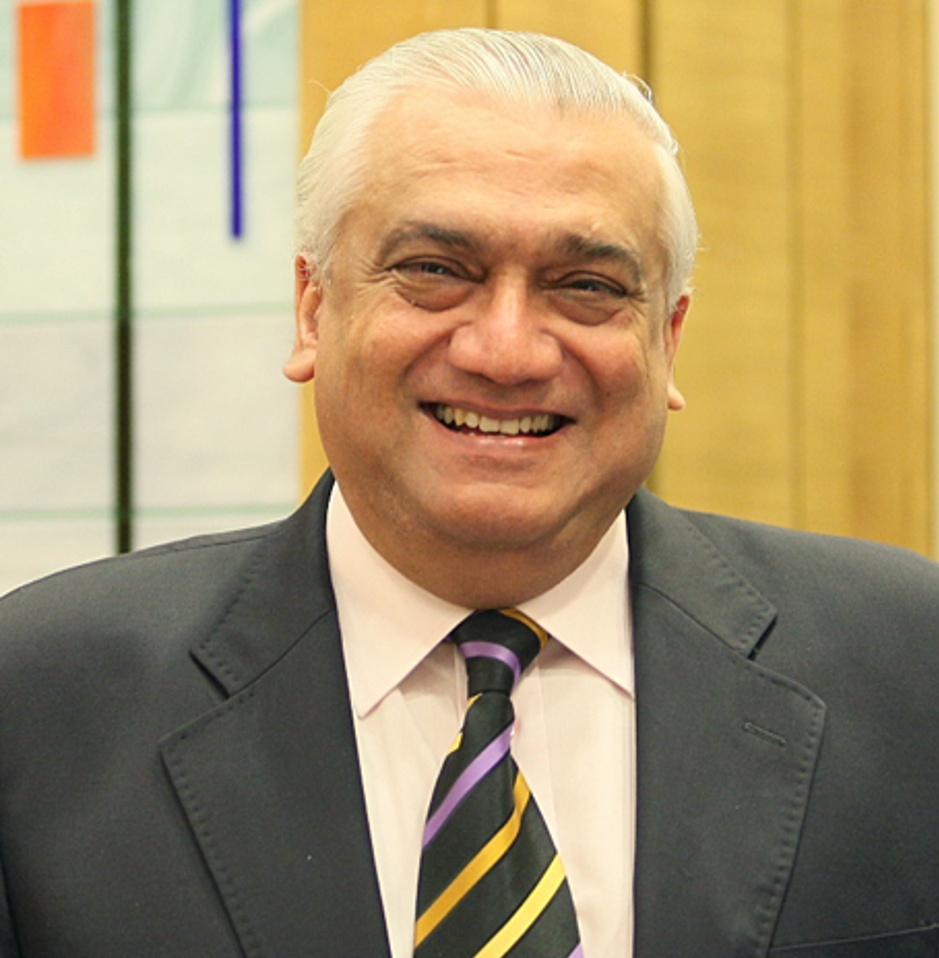The Middle East is today in a state of unprecedented turbulence. The two principal Islamic giants of the region – Saudi Arabia and Iran – are locked intense competition. The ongoing struggle has strategic, doctrinal and political ramifications. While the divide between them primarily stems from strategic concerns, it is being shaped in strident sectarian terms. This has split the region in a visceral manner, perhaps not seen in this intensity since the early days of Islam. The competition has been a major contributor to two wars in the region - in Syria and in Yemen. These have led to the deaths of over half-a-million people, the destruction of cities and societies, and serious humanitarian crises that threaten the lives of millions of people, without either side being able to claim full victory. The conflicts Syria and Yemen, and the intense Saudi-Iranian rivalry, have drawn in other countries, each of which has been seeking to shape a new role for itself within the region. At the regional level, Turkey and Israel are deeply involved. At the global level, Russia and the US are now major players in the ongoing regional confrontations. The emerging rivalries portend further uncertainties in the regional scenario. The Trump presidency, for example, is deepening regional divisions by adopting a pro-active, even aggressive, posture against Iran, while some backing for Saudi Arabia. While other powers may not be so overtly divisive as this, their policies can also be problematic for the region. With the intensifying vituperative rhetoric, and the vast expenditure on expanded military arsenals, an armed conflict between Saudi Arabia and Iran has become a distinct possibility. The danger is enhanced by the fact that neither country has so far taken measures to re-set their relations on a basis of confidence-building and engagement. Nor have extra-regional powers taken any initiatives aimed at such an objective. These inter-state rivalries and conflicts are occurring within a regional framework which tends to stoke instability rather than restore stable relations. Two major regional faultlines are impinging negatively on prospects for stability in the area. They are: The assertion of Kurdish aspirations for independence, and the resistance to this. This threatens to overturn regional geopolitics, and The fierce challenge to regimes mounted by trans-national forces (mainly the Al Qaeda and the Islamic State), and the resistance of established governments to this. Although both of the main Islamist groups have been subdued militarily, their ideology and their cadres remain undefeated. They are still capable of inflicting harm upon state order in West Asia and Africa, and upon soft targets in Europe and the US. The impact of these faultlines is deepened by three critical characteristics of the regional system: Regional institutions are no longer effective. Both the Arab League and the Gulf Cooperation Council are increasingly reflecting the fissures among regional players and have become largely inert and non-functional Domestic aspirations for reform are very strong, and are not being satisfied. This dissatisfaction comes largely from the youth, who are seeking a fresh social contract so as to move away from the patriarchal and patronage-based polities currently in existence. Even when economic and social reforms are introduced, no significant changes in the political system are pursued. Economic stresses are impinging critically on large parts of the population. This stems in part from the precipitate fall in oil prices, but also from the failure of governments to grapple with changes in the geology, technology, economics and geopolitics of global energy. Aggravating this are the ever-growing inequalities between rich and poor, and high levels of corruption which distort economic planning and outcomes. With the active political and military involvement of Gulf states in competition/conflict across the Middle East, the security scenario in the Gulf is now seamlessly interlinked with developments in the wider region. It is clear, therefore, that the key to regional stability and peace in the Gulf (and perhaps the wider Middle East) is the building of confidence between the two principal Gulf states - Saudi Arabia and Iran - and the promotion of dialogue between them to address matters of mutual concern. In the long term, the achievement of peaceful relations between Iran and Saudi Arabia needs to lead on to institutional pan-Gulf structures to handle the security of the area – a Gulf cooperative security arrangement. The latter will require the active involvement and engagement of all the Middle Eastern regional states and external powers and bodies with an interest in the region’s security. The Gulf security scenario has significant implications for the interests - political, energy, economic and logistical - of most of the major global powers, and also of some middle-sized powers. Yet whereas the United States and some Western countries have been actively involved with Gulf security issues, others have not; despite having long-standing political and economic ties with the region they have remained “fence-sitters” on political/security issues. This is not surprising since, till recently, the US effectively acted as the hegemonic power in the region, giving little or no space to other potential role players. Now, however, the situation is changing. On the one hand, the US is showing lessened enthusiasm for maintaining an all-encompassing security role in the region while, conversely, the level of trust which the US enjoys in the region has declined – both under President Obama and more so under President Trump. On the other hand, major European and Asian powers are becoming increasingly cognisant of the potential they have to pursue diplomatic/political/strategic roles in the Gulf, as also of the risks to their interests if insecurity spreads further. Most of these latter countries, moreover, are interested primarily in security outcomes achieved through agreement and peaceful resolution of conflicts rather than though military imposition.
3 DAYS / 12 Workshops
MORE THAN 300 ACADEMIC PAPERS
Objectives and scope: The workshop will offer a unique opportunity for Gulf scholars from different backgrounds to reflect on and discuss among themselves the pursuit of stability and peace in a deeply divided and contentious landscape. The directors of the workshop have considerable experience of Gulf affairs. Three of the four directors of this workshop have together directed three GRM workshops in the past, which have ventured into new areas of Gulf studies such as ties with BRICS, the Indian Ocean, and the Shanghai Cooperation Organisation, while the “adviser” has not only been a participant in many of these workshops but has also participated in some ongoing peace-related initiatives. Suggested topics for papers: While we would welcome submissions on all topics relevant to our overall theme, we will seek to ensure that we have a reasonable coverage in the following fields:
• Conflict resolution theory, and its application to Gulf competition/conflict
• The relevance of theory?
• Comparative international experience: CSCE/OSCE; ASEAN etc
• Logistical connectivity and energy sharing as a means of promoting peace
• Cooperative security arrangements as a means and outcome of conflict resolution
• The relevance of Common Markets and economic integration
• Regional confidence-building and cooperative security
• Problems/issues capable of aggravating regional divisions in the Gulf region and which require resolution within any peace initiative
• Security fears
• External interests
• Energy interests, especially as related to shared resources
• Minority groupings with cross-national links
• Radical Islamist movements
• Religious/sectarian differences
• Proposals and Frameworks for Gulf Peace Initiatives, Already on the Table
• National: European initiatives; Asian initiatives; US initiatives
• Institutional (international organisations): the United Nations, the Islamic Cooperation Organisation, the Arab League
• Institutional (non-government bodies/groupings): peace groups, academic and non-official diplomatic groupings, religious bodies, interest groups etc.
• New Proposals for Gulf Peace Initiatives
• Proposals which workshop participants wish to put forward, whether on their own behalf or on behalf of a wider grouping
• Proposals for particular countries or institutions/organisations to take initiatives
• Possibilities for Gulf countries to take initiatives in seeking cooperation in de-radicalisation, anti-terorism and marine security, creating formal or informal institutions for this
• Possible cross-national initiatives (e.g. Russia/China/India)
• Feasibility of a “Marshall Plan” for regional peace and security in the Gulf.
• Tangential Issues Needing Clarification/Consideration/Resolution
• Turkey’s role in Gulf and Middle East security
• Egypt’s role in Gulf and Middle East security
• Satisfying Kurdish aspirations in a regional security framework
• US-Iran confrontation and possible cooperation
• Possibilities of accommodating the Muslim Brotherhood in a regional peace paradigm
• Links with Israel/Palestine issues

